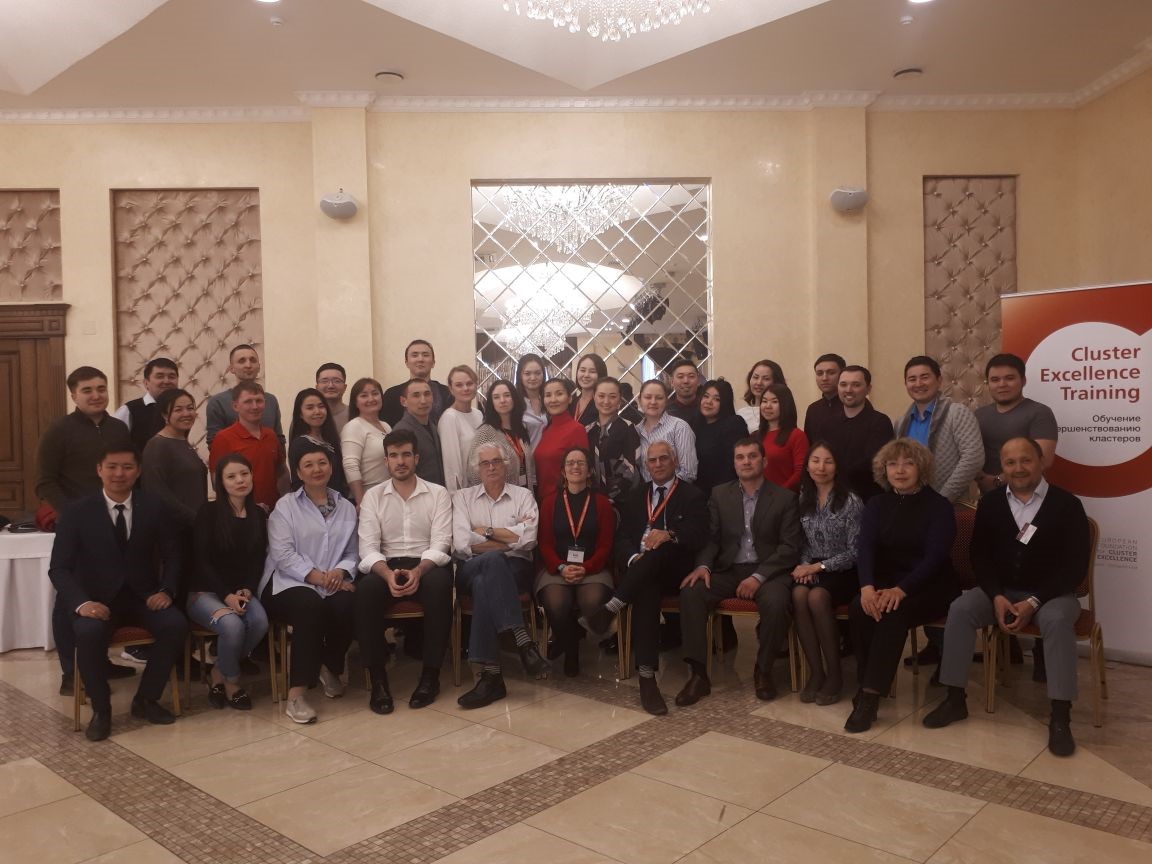5th training module on the topic "Cluster organization management and project management" was held in Kostanay since April 16 to 20
5th training module on the topic "Cluster organization management and project management" was held in Kostanay since April 16 to 20 The training module was organized within the framework of the World Bank project for "Enhancement of the competitiveness of the Ministry of Railways in the Republic of Kazakhstan" with the support of the Ministry of National Economy of the Republic of Kazakhstan, the Ministry of Investment and Development of the Republic of Kazakhstan, KIDI JSC
The module was attended by leading foreign experts in cluster development:
- Reza Zadeh, Executive Director of the European Foundation for Cluster Improvement,
- Ines Sagrario, lead consultant and partner of the Competitiveness company,
- Maria Louise Blazkez, Research Fellow at the International Center for Competitiveness of the IESE Business School (Spain),
- Werner Paminger, Chief Executive Officer of Business Upper Austria (Austria),
- Jose Luis Courbello, Senior Research Fellow at the Institute for Public Goods and Public Policy (Spain),
- Jon Ansoleaga, Managing Director of the Basque Building Cluster ERAIKUNE.
Models of cluster development in different countries are individual. Today, having 25-30 years of experience in cluster development in such countries as Spain and Austria, cluster organizations have become self-sufficient private institutions, where government support is minimized. Thus, financing of the Basque construction cluster ERAIKUNE consists of 14% of state support, the remaining sources of financing are share ownership and project management (30%), service provision to companies (28%) and membership fees (28%).
All market players have a clear understanding of the difference between the cluster organization and the association. So in Austria, all producers must be a members of an industry association, which basically performs lobbying functions. Other organizations (colleges, universities, suppliers) cannot become members of such associations. The Association functions at the national level. In the clusters of the regional level, all interested stakeholders can take part: universities, colleges, suppliers, representatives of linked industries, etc. Participation in the cluster is not mandatory, the cluster has open boundaries.
It is also important to note the existence of special instruments for state support for the development of territorial clusters. So, both in Austria and in Spain there are special grants aimed at supporting and developing cooperation for the implementation of joint initiatives. Such a grant is designed to implement a joint project by a consortium of at least 3 non-affiliated companies, with state funding amounting to 60%. Projects can be aimed at developing cooperation ties (participation in exhibitions, trade missions, etc.), development of competencies (trainings, development of special courses, etc.), as well as small innovative projects, where it is also necessary to attract at least 1 university. Such mechanisms are used as tools to stimulate cooperation and catalyze the development of clusters and help companies to improve their competitiveness through the principle of "coopetition" (cooperation + competition).
As a rule, cluster organizations are created after a large thorough work to build trust between market players, develop joint strategic directions for development, form a pool of joint projects and understand the tools for their implementation. Although there are successful examples of cluster initiatives in which such organizations were not available (Yorkshire Seafood Cluster).
Thus, for cluster development, the creation of a cluster organization is not an end objective itself, it is more important to understand how the sectors develop further, what strategic goals should be set based on global trends in the industry, than to manage before creating such a management body.
6th training module will be held in Astana since May 14 to 18, 2018.





